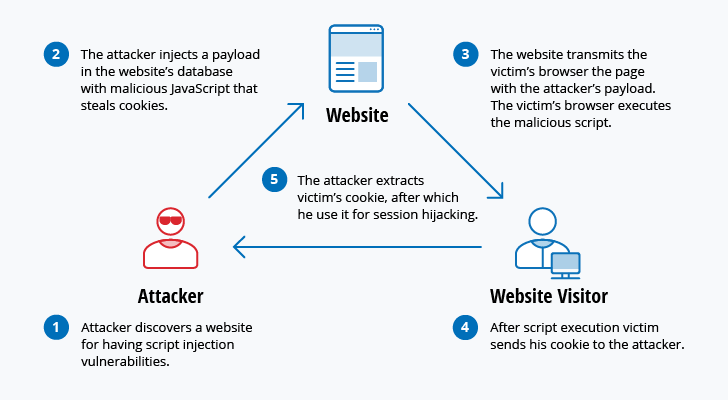- Home
- Top 5 Cybersecurity Certifications That Will Greatly Benefit Your Career in 2020

Top 5 Cybersecurity Certifications That Will Greatly Benefit Your Career in 2020
There were at least 3,800 publicly disclosed breaches in the first half of 2019 with over 4.1 billion records exposed. This figure represents a staggering 54% increase over the breaches that were reported in 2018 during the same time period and 52% in the number of compromised records. Of all the reported violations, 60% was due to the human factor. These figures highlight an ever-increasing need for the highly trained and skilled cybersecurity professionals and thorough cybersecurity education.
Based on reliable reports, it is predicted that the number of available cybersecurity job openings will continue to increase throughout 2020 because the demand for the skilled cybersecurity specialists continues to grow. It is also estimated that by 2021 around 3 million vacancies will be opened worldwide.
Currently, the employers tend to consider the IT credentials the primary measure of commitment to quality and excellence. So, if you want to make a breakthrough in the field, then you should earn at least one of the top cybersecurity certificates. Maybe you already know how obtaining the sought-after certifications is important for your career growth in 2020, but you simply can have no idea which one you should go for. Well, you have come to the right place. In this blog post, we will focus on the top 5 cybersecurity credentials. Here we go!
1. CISM: Certified Information Security Manager
It is the best cybersecurity certificate for developing the top organizational security practices. It is also the most popular one among the IT professionals who are responsible for developing, overseeing, and managing information security systems in the enterprise-level applications. Introduced by the Information Systems Audit and Control Association (ISACA) in 2003 to the security specialists, CISM has stood the test of time and established itself as one of the best cybersecurity badges of all time.
The organizational goals of ISACA are specifically geared towards those IT professionals who want to achieve the highest quality standards in terms of auditing, security, and control of information systems. It addresses the needs of the individuals who are responsible for managing enterprise-level security. The holders of this credential possess proven and advanced skills in security risk management, incident management, and response, governance, as well as program development and management.
The CISM certification is valid for 3 years, so the holders are required to pay an annual maintenance fee of $85 (for the non-members) or $45 (for the members). They must also earn 120 or more Continuing Professional Education (CPE) credits within a three-year period in order to maintain the certificate. They should get a minimum of 20 CPEs every year.
2. CEH: Certified Ethical Hacker
If there is a group of people who have proven to be very innovative, then they must be the hackers. They constantly find new techniques to attack information systems and exploit their vulnerabilities. The savvy businesses engage the expertise and services of those IT professionals who are skilled in hacking – often known as white hat hackers or ethical hackers – to legally test their system in order to identify any issue. These experts are known to often beat the hackers in their own game. They do so to ensure the safety of their information systems.
Offered by EC-Council (the International Council of E-Commerce Consultants), Certified Ethical Hacker (CEH) is an intermediate-level certification for those individuals who are pursuing their career in this sector. The credential verifies their competence in reconnaissance, covering tracks, maintaining access, gaining access, and enumeration. These are generally 5 phases of ethical hacking. The holders of this badge possess the relevant knowledge and skills in hacking practices in various areas, including reconnaissance and footprinting, worms and viruses, scanning networks, denial-of-service attacks, and web applications. These domains also include wireless networks, evading IDS, honeypots, firewalls, penetration testing, cryptography, SQL injection, session hijacking, worms and viruses, Trojans, system hacking, enumeration, social engineering, and hacking web services.
3. Security+
It is a vendor-neutral and well-respected credential. The holders of CompTIA Security+ are recognized worldwide as the professionals with superior expertise, broad knowledge, and technical skills in multiple security-related disciplines. The candidates who want to obtain this certification should have a minimum of two years of experience in network security. In addition, it is also recommended that they earn CompTIA Network+ first. Those specialists who get the Security+ certificate possess expertise in various areas, including threat management, security infrastructure, network access control, security risk mitigation and identification, security systems, identity management, and cryptography.
4. GSEC: GIAC Security Essentials
It is an entry-level certification offered by GIAC. The credential is designed to validate your understanding of information security concepts as well as terminology. It validates your technical expertise to take up hands-on security job roles. When you obtain this badge, you demonstrate that you have technical skills and in-depth knowledge related to different domains, such as password management, access authentication, cryptography fundamentals, identifying and mitigating wireless and general attacks, network protocols, access controls, Linux, network protocols, public key infrastructure, network mapping, ICMP, IPv6, and DNS.
5. CCSP: Certified Cloud Security Professional
This certificate is offered by (ISC)2 and designed for the middle-level and advanced-level experts who are involved in IT architecture, risk and compliance, IT auditing, governance, information security, as well as web and Cloud security engineering.
Conclusion
Naturally, some of the top cybersecurity certifications discussed above may require more investment and commitment than others, but this doesn’t mean that you should choose the easiest one to earn. Just ensure that you are pursuing the credential that will help you grow in your career and put all your efforts into it. Good luck!
Popular posts
Recent Posts
- Certified in Risk and Information Systems Control (CRISC): Exam and Salary Analysis
- Certified Kubernetes Administrator (CKA) vs. Certified Kubernetes Application Developer (CKAD): Which Path to Choose?
- Machine Learning and Big Data Analytics: New Content in the Microsoft Certified: Azure AI Engineer Associate Exam
- The New PMP Certification: What’s Changed in PMI’s Approach to Project Management in IT?
- The Impact of AI and Automation on IT Certifications: New Topics Emerging in 2024 Exams











